Reverse Culture Shock: German Edition
I am so back, baby! After, admittedly, a rougher-than-usual PCS, I’m finally finding my footing again and returning to the goals and intentions that I set at the beginning of the year (which is nearly over). I’m still working on collecting my thoughts regarding the four years we spent in Germany, so expect that post after this one. I know, not chronological, but I’m coasting on fumes here and just trying to get back into writing again. So thank you for the grace.
When you move abroad, there’s always the expected culture shock, which I outlined in my Culture Shock in Germany post. Something that gets talked about with a little less frequency is the staggering reverse culture shock one experiences when they move back to their country of origin. It’s puzzling how ways of life you considered normal for most of your life now appear a bit strange with your new life lens. It can be a bit of an alienating experience, because quite frankly, it’s one that a majority of the population never experiences first-hand. But, gentle readers, I’d love to walk you through what it’s like moving back to the U.S. after living in Germany.
Join me below for what I miss about Germany, what I don’t miss about living in Europe, and all of the big reverse culture shock moments I experienced in my first five months back in the United States.
Part 1: What I Already Miss About Germany
If you’ve kept up with our adventures on the blog, you already know that I absolutely loved our four years abroad living in Germany. In fact, they went by so quickly, I’m still in the process of editing all of our photos and writing blog posts from our whirlwind travel years. But what do I specifically miss about our life in Europe? Quite a bit, as you can see.
trains, Buses & My own two feet: stress-free transit
I’m not much of a driver; I never have been. So moving to Europe with its extensive transit systems was like heaven on Earth for me. There were endless ways to get around without ever needing to drive. In fact, I set a goal in 2022 to drive twice a month and FAILED. We lived in the heart of the city, so I was three minutes away from the nearest bus stop, five minutes from the U-Bahn (subway) stop, and 10 minutes from the S-Bahn (city train) stop. Additionally, I could hop on an intercountry train and be in Paris in three hours, Zurich in three, or Amsterdam in six. And if I didn’t want to ride? I was also able to walk to the grocery store, countless restaurants, and a sprawling city park. I cannot put into words what this does for one’s quality of life. Truthfully, this is the single biggest loss I’m feeling moving back to a car-bound country.
Tilt-Turn Windows & Daily “Lüften”
I mentioned these in my Culture Shock in Germany post, and I think I knew then that I would miss these windows. They just feel so much more efficient than sliding windows. Granted, it did mean that in the summer our house had a few unwelcomed guests when we had all the doors open. There was the one lazy July evening that a bunch of bats flew through our open bathroom door and I refused to come home until Mark secured the house, or the morning that I discovered a lizard hanging out in our guest bedroom. Obviously since we landed back in the States during the triple digits of summer desert hell the windows remained sealed and closed, though I’m hoping to bring our lüften practice back now that cooler days are on the horizon.
The Freshest of Fresh Produce
As someone who follows a primarily plant-based diet, the farmers markets and produce of Europe are something I miss incredibly. First, unlike the States, produce was cheap. During the summer months, I was able to buy a head of lettuce for a little more the $1 and it would make six dinner plate-sized salads. Everything was so fresh and picked at optimal ripeness that if you didn’t get to eating your fruit within a few days it would spoil. This alone forced us to really clean up our diets and I got used to buying produce more than once a week. This was easy to do since the farmers market took place three times a week just a mile from our apartment in the heart of the city. If I didn’t make it to the market, leftovers from the stands made their way to the grocery stores. It was all just so fresh and local. I also miss the seasonality of it all, even though it was sometimes annoying. In Europe, the grocery stores only carry what’s in season. It’s literally impossible to find asparagus any time other than the spring or strawberries in the winter. This made it feel like a rare treat when that season finally rolled around in a way that I can only imagine how children felt during the Great Depression getting an orange for Christmas.
vegetarian? No problem.
Since I began my mostly pescatarian lifestyle in 2019, dining out can sometimes be a challenge. Not in Germany. With around 10% of the population following a vegetarian diet and another 55% subscribing to a flexitarian diet (aka what I consider myself), it’s never hard to find something on the menu that caters to your dietary needs. In the States, most restaurants have a side salad or one sad Impossible burger option and that’s it for the veggie crew, whereas most places we went in Germany had a whole section of vegetarian and vegan options. This made eating out with friends so much less of chore and I felt able to relax and enjoy myself more instead of frantically scouring a menu beforehand trying to figure out how I would get my needs met without being a burden to the group.
Intentional Green and Third Spaces
I love how German cities are laid out. Even among all of the concrete and buildings, you usually didn’t have to walk far to get to a sizable green space. And this was true for ever single city. In Stuttgart, we lived about 1.5 miles from the sprawling park in the city center. There were multiple gardens and a running path that was three miles around a pond. When we visited friends in Hamburg, it was the same set up: a nice loop around a pond in a tree-lined park. This made all of my runs so much more relaxing as I wasn’t constantly worried about getting hit by a car or dealing with changing traffic signals.
Another point for European city planning is the idea of third spaces. These are areas for gathering and socializing that aren’t your home (first space) or work (second space). The parks provided an obvious third space. When the weather cooperated, I would meet up with my craft group at the park under the trees and we would knit while snacking and people-watching. With suburban-heavy city planning, many U.S. cities aren’t built like this. The only way to get some idea of third space is a restaurant outing, which really isn’t the same vibe as hanging out in the park.
Part 2: What I Don’t Miss About Germany
I realize that my blog is mostly centered around the positive experiences of our time abroad, and this is intentional. I truly believe that what we give weight to dictates our outlook on events. There’s multiple stories to every situation and more often than not, I’m going to choose to remember the good. That said, there are daily challenges with living in a foreign country, and my experience wasn’t immune to this fact. While I wouldn’t trade our time abroad for anything, here’s a few things I don’t miss.
The Uncrossable Language Barrier
I made a decent effort to learn the language while we were there and it still just wasn’t enough. I could get by with easy, predictable conversations, but to have a real chat with someone? Forget it. Most people were fairly forgiving about it, but there was just this sense of aloneness and being the odd one out all of the time. There was a sense of helplessness that I couldn’t speak up for myself against injustices, like people cutting me in line, because I just didn’t have the words. Or every time I went to the doctor, I never felt like I was given proper aftercare instructions because they didn’t want to bother giving them in English, which I don’t really fault them for. I’m in their country after all. It’s just a really frustrating experience and overall the expectation to understand and speak German was significantly higher than to speak Japanese in Japan when we lived abroad the first time.
There will be rules!
Germany has rules for everything: when to recycle glass, how to register your car, even what days shops are open. And sure, the U.S. has rules too, but this is a completely different level. There are no gray areas, no exceptions, and absolutely no “I know a guy who can rush it.” If something takes ten business days, you’re waiting all ten.
At first, it felt charmingly structured, until I found myself staring at an empty fridge because Christmas landed on a Friday and everything was closed for days. What started as “slow living” sometimes veered into “slow starving.” It taught me patience, yes, but also how much I’d taken American flexibility and 24/7 lifestyle for granted.
The Infamous Poop Coins
In the famous words of Taro Gomi, everyone poops. But in Europe, it’ll cost you. Every. Single. Time. Sometimes I didn’t mind this because it meant that rest stop toilets were always pretty clean. Though sometimes it was downright inconvenient. Every time I went for a run, I had to carry change with me just in case I might need to use the restroom. Unlike the States, you can’t just pop into any store and use the toilet for free. There was even one time we were paying customers at a restaurant and had to pay to use the restroom! Some toilets were card operated (bless up), but many were not. So if you forgot your coins or didn’t have them on you, then you were quite literally shit out of luck. Traveled to Switzerland from Germany? Well I hope you have Swiss Franc on you because your Euros won’t work for the toilet there.
Keys, keys, for the love of god, don’t forget the keys
Every door to our apartment required a key. There was the building key and our house key, pretty standard stuff really. The not so standard part? Every door, including our apartment locked automatically upon shutting. I cannot tell you how many times I meant to simply take the garbage down to the dumpster and remembered just a second too late that I didn’t have a key in my pocket. Or the times that I would get all the way home from the gym (almost a 40-minute trip) to realize that the key that was normally in my gym bag was still in my traveling backpack from our weekend excursion. Luckily, I never managed to lock myself out of our apartment while Mark was gone. Of course if you lose your key, you can have it rekeyed, but if you lost the building key, you were in for a huge bill since they would have to replace the lock and key for every single person living in the complex.
Our Kitchen and Sorting the Trash
I loathed our kitchen in Stuttgart, which is ironic because it’s also where I really upped my cooking game. First, our apartment had zero carpet, except for in the kitchen, one of the few places you don’t really want it. Second, our stove wasn’t full-sized, so it wouldn’t fit our pizza or roasting pan. It also had issues holding a consistent temperature, so baking and cooking times were mere suggestions. Finally, our sink was a disaster. It was smaller than most bathroom sinks, making handwashing dishes not possible. The water heater was also seriously underpowered, so you had to wash in short bursts otherwise you’d be left with nothing but cold water. There also wasn’t a garbage disposal which was the cherry on top of the rest of the annoyances.
Something else I have a love-hate relationship with is the garbage sorting. Having four separate trash cans (bio, cardboard, plastic/metal, and normal garbage) took up considerable space in our already packed kitchen. Our counter was also almost always crowded with glass waiting to be recycled at one of the kiosks in town, which could only be done during certain hours on certain days. Don’t even think about having a rebellious moment here, because if you just throw it away in normal trash or recycle outside of the posted hours, you could get fined up to €5,000 ($5,800). While I loved how much more environmentally-friendly life was, it also was not convenient.
Hard Water Showers & Lime Scale Battles
While the water hardness is definitely a bit less in Germany than it is in Las Vegas, it still managed to wreck havoc on our skin and hair. Unlike Las Vegas, soft water systems weren’t really a thing, so I just had to deal with my hair looking pretty awful for four years. This also made it difficult to keep the bathroom looking clean and required a lot of scrubbing. On a related note, drainage in Europe as a whole is pretty bad. I had to run Draino down our shower every week and there was still standing water every time we showered. Our maintenance guy even snaked it, with nothing coming up, and it still did not drain properly. At first I thought it was just our shower since our building was older, but nope, this was a problem in multiple countries that we visited while we lived there.
Part 3: Biggest Reverse Culture-Shocks Moving Back to the United States
Since this is my second time returning from living abroad, I thought the reverse culture shock wouldn’t be so dramatic. Wrong. It still hits every time, though this time I feel like I picked up on different things than the last time (damn, I really wish I would have documented that first time a bit better). I know this post is getting a little long as is, so I will try to briefly run through everything.
I understand EVERYTHING again, and it’s overwhelming.
While the language barrier was rough at times, there is a certain peace that comes with being able to automatically tune out background conversations.The volume dial is stuck on LOUD
I hate to be the bearer of bad news, but you can really tell someone’s American by the fact you can hear someone’s conversation from across the restaurant. We really need to do more to protect our hearing or something.The politeness of strangers
It’s a general rule that the further West you travel in Europe, the less friendly the people get. Germany was cold and Poland was straight up frigid. Needless to say, it’s been a bit of an adjustment getting used to random strangers waving at me on my runs and the grocery store clerk making small talk about my purchases.The utter speed of life
Everything in Germany felt like it took months of red tape to resolve. No one was working weekends, and don’t even think about trying to get anyone in Europe to do anything during the entire month of August. But here? A request is barely off the tip of my tongue before someone has completed it. Capitalism moves fast, and I’m not necessarily sure I agree with this pace. Maybe we should meet in the middle?Americans walk funny
When we first moved, I could never tell how Europeans could spot Americans so easily and now I see it. Guys, we walk weird. The first few laps I took around the neighborhood, I couldn’t get over how wildly everyone was swinging their arms, almost with a lack of control. And this is something I’ve noticed more and more as the months wear on. I can’t explain why, but it really sticks out.All the freebies
A big point for ‘Merica here. Water at the restaurant? Free. Soda refills? Keep ‘em coming. Ketchup packets at the McDonald’s? $FREE. Using the toilet at any business? No cost, babes. Obviously, there’s a trade off with all this FREEdom, but let me enjoy my third Coke Zero for now, okay?How did my grocery bill double?
And here’s that tradeoff for all the freebies. My friends warned me about this, but seeing it with my own eyes is something different. I’m already missing my farmers markets. While we’re on the subject of groceries…Goodbye grocery store bagging Olympics
As I mentioned in my Culture Shock in Germany post, the cashiers were merciless at the grocery store and over the course of four years, I finally stopped having panic attacks every time it was my turn. I will say it feels strange standing idly by watching the cashier scan and bag now. I’m willing to help, friend.Absolutely no one can drive
Germans are known for being some of the best drivers on the planet and Las Vegans are… not. It honestly feels it has gotten worse since the last time we moved here. At first, I struggled to maintain the speeds of the side roads and every highway felt like I was crawling.The ceiling fan
I didn’t realize how much I needed you in my life until my only options were box fans. I missed you.Weekly trash pickup
In the entire four years of living in Germany, I could never figure out when trash day was, but I can tell you it was never enough. Now the trash comes by every week and every other week for bulk items. They picked up a king-sized memory foam mattress for free! America gets tons of points on this one.
If moving abroad is a jolt, coming home is a slow rewiring. Five months in, I still miss the trains, park runs, and seasonal produce. I’m relearning how to say yes to free refills, practicing my small talk, and trying not to be an utter liability on the roads.
I’m the first to say how much I love living abroad, but it’s worth naming the hard parts too. Life is blooming where you’re planted, and at this point I’m a weed, thriving in whatever cement block you stick me in.
More soon on our four years in Germany as I keep untangling the feelings and the frenzy of being back.


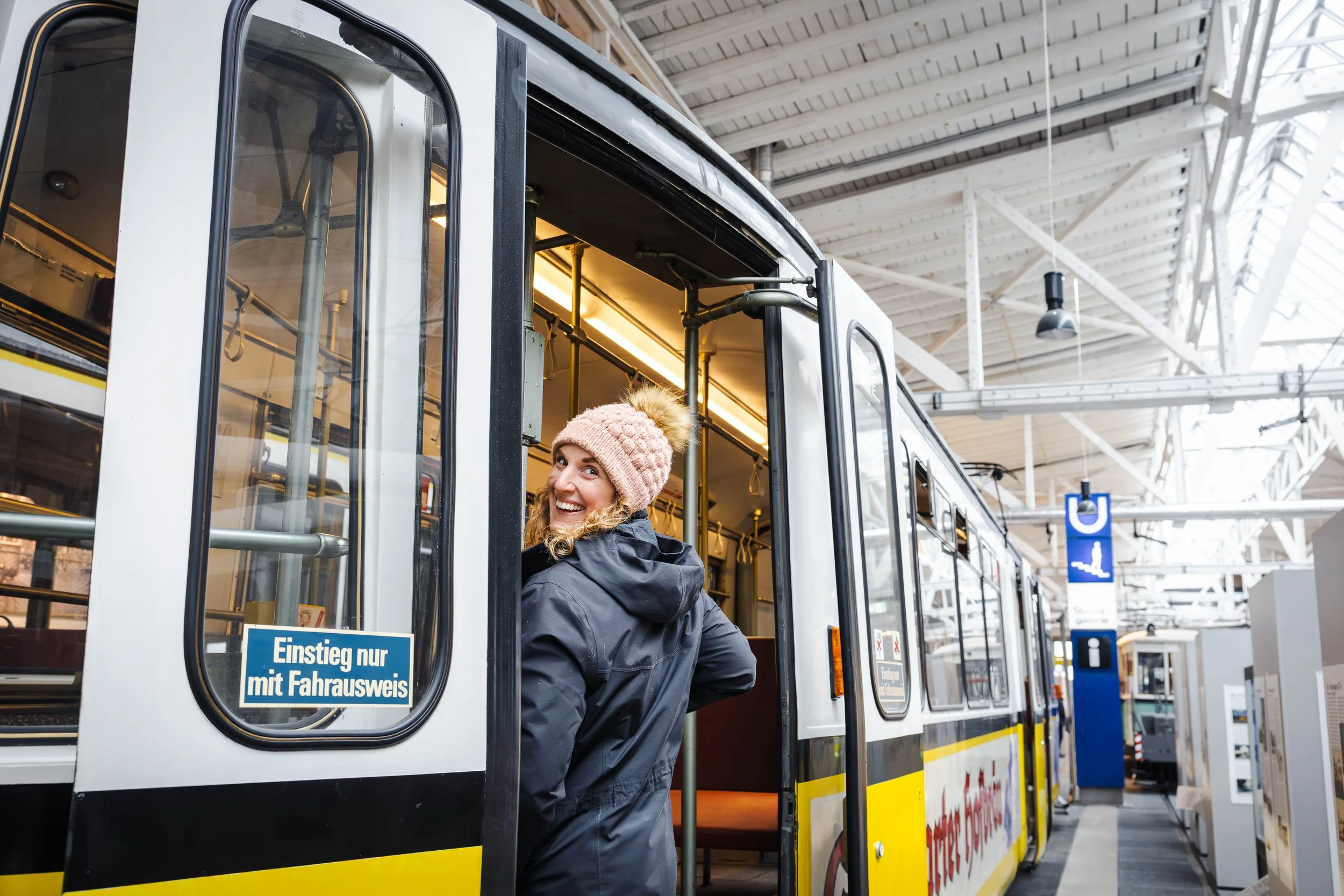

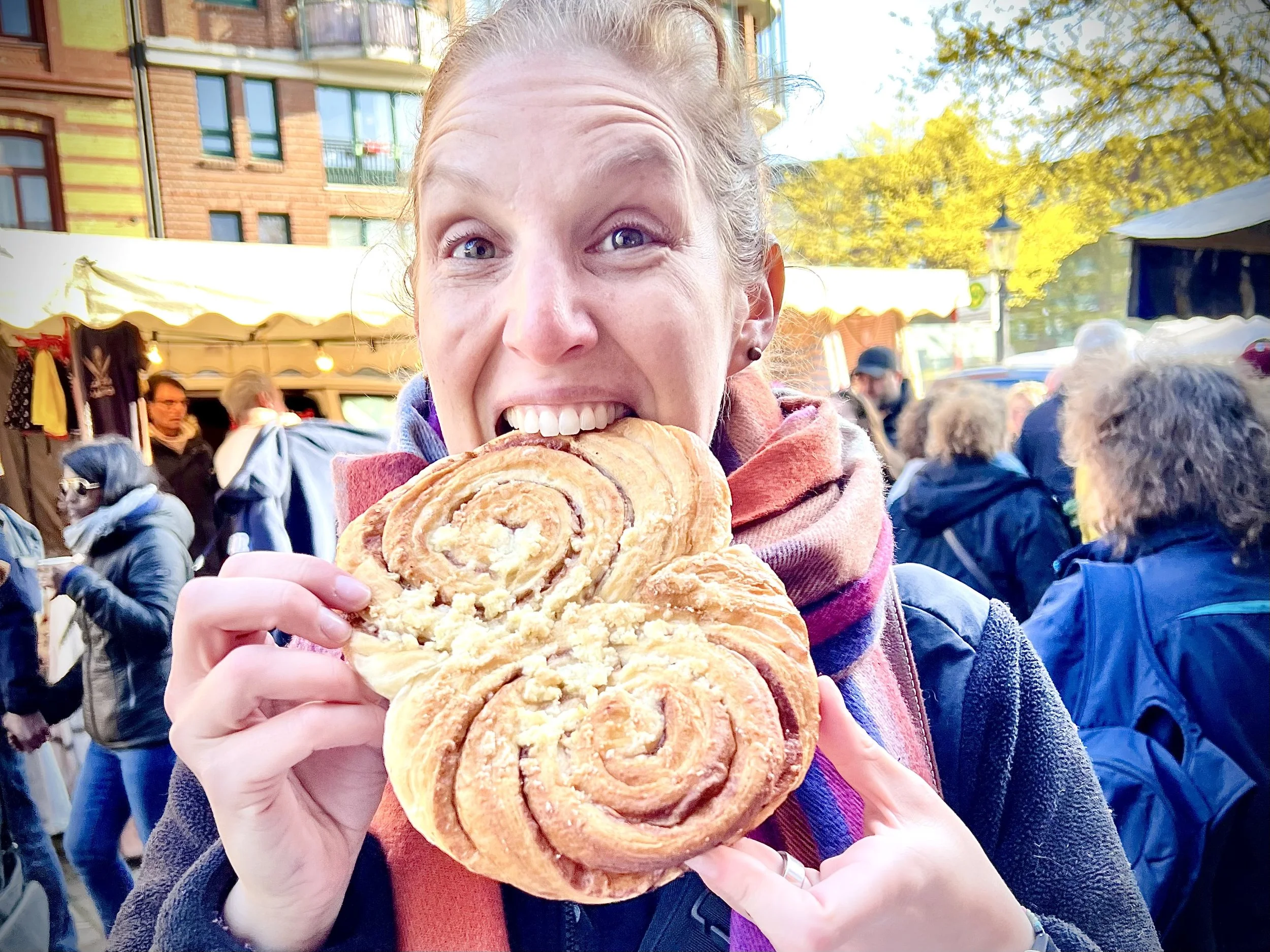

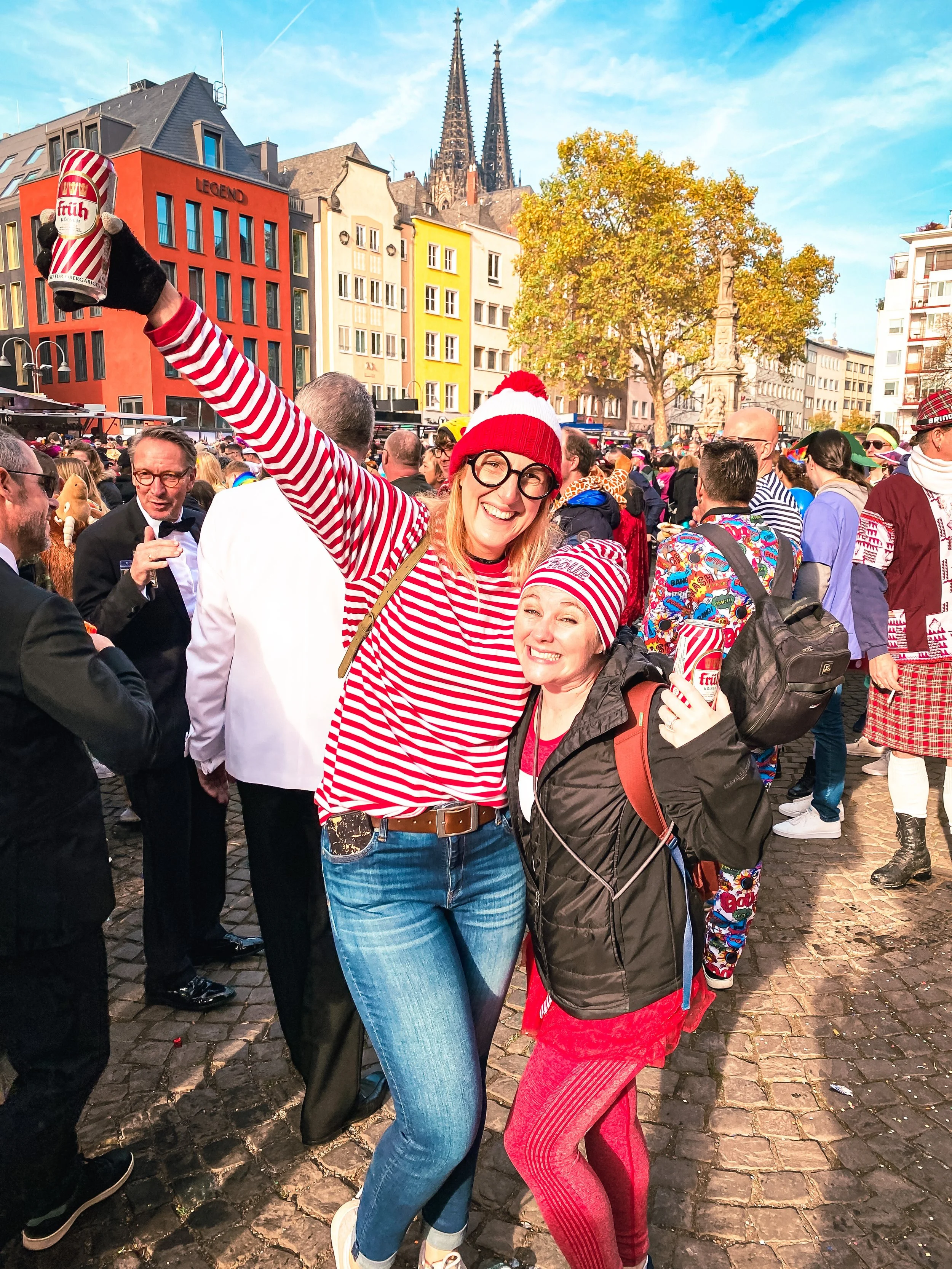
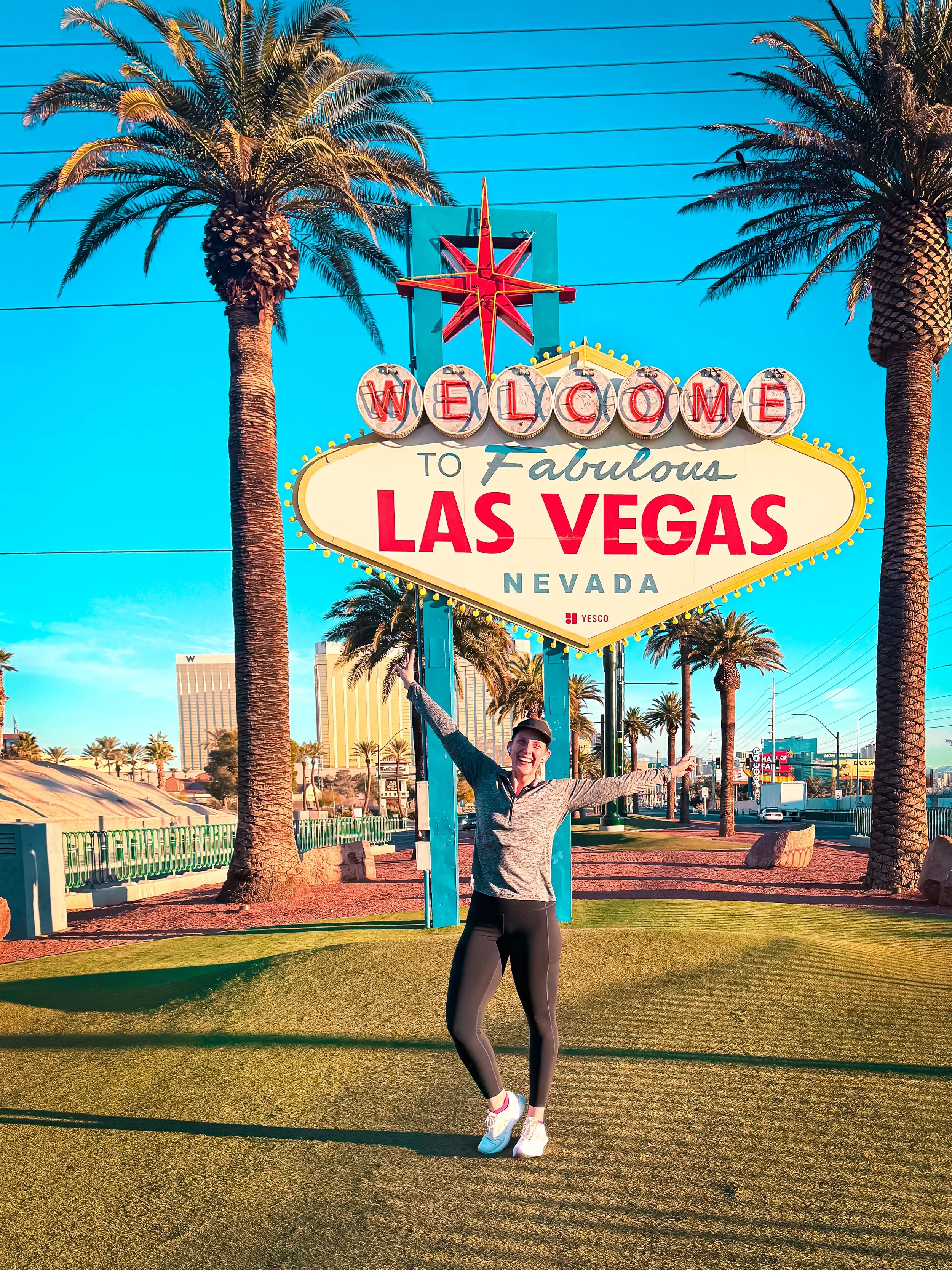






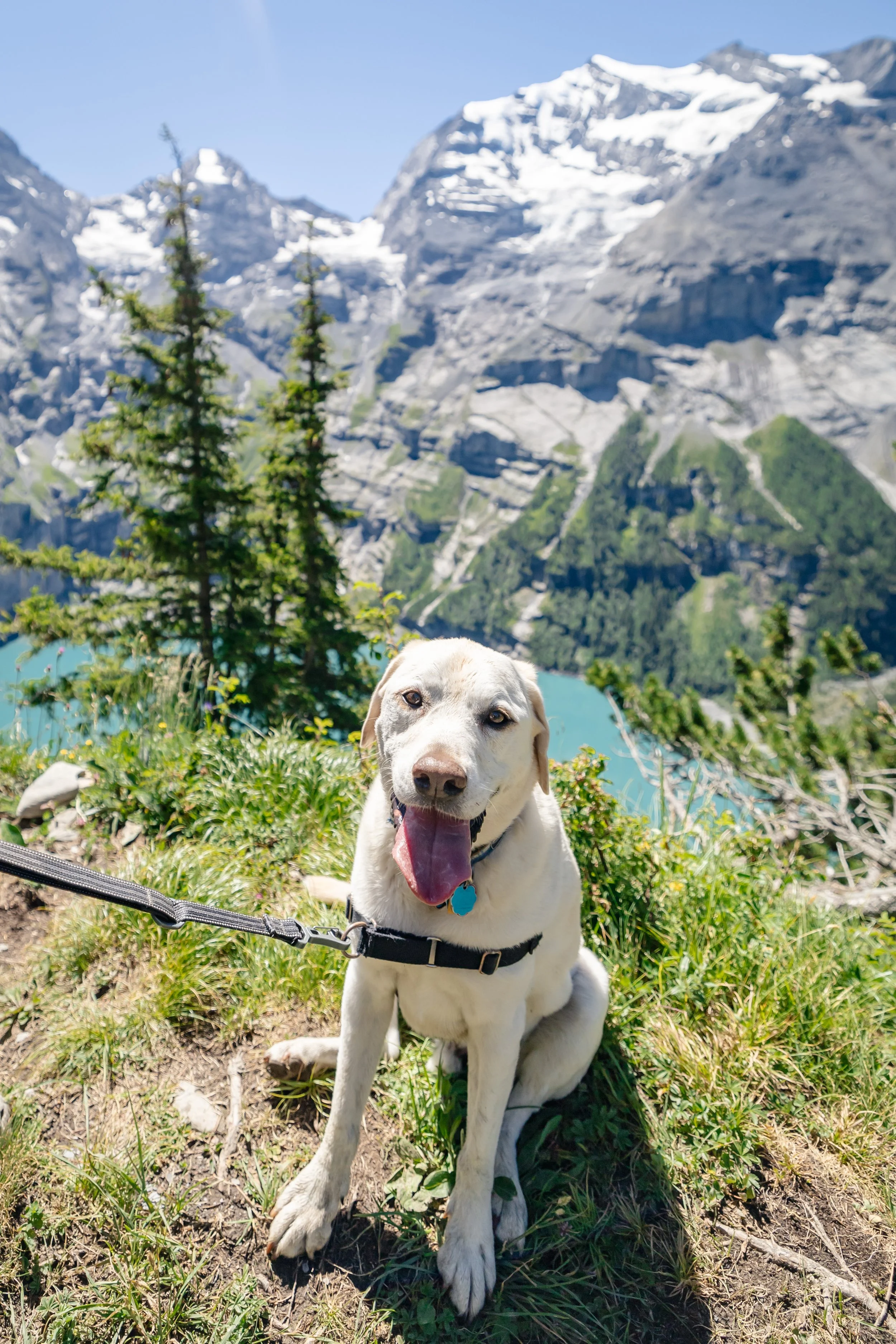
Returning to the U.S. after four years in Germany has been an adventure of its own. From missing efficient transit to rediscovering free refills, here’s what reverse culture shock looks like through my expat lens.